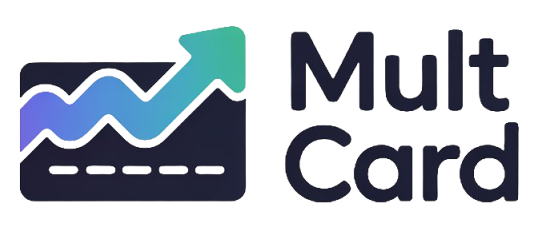In the digital age, securing a loan has transformed from a lengthy, in-person process to a few clicks on a screen. Yet, behind this streamlined convenience lies a complex system of evaluation, and at its very heart is a single, powerful number: your credit score. This three-digit figure acts as a financial gatekeeper, often being the single most influential factor in a lender’s decision-making process.
Understanding the profound connection between your credit score and your ability to get approved for an online loan is not just helpful; it’s essential for navigating your financial future. This number can determine whether you get a “yes” or a “no,” and it dictates the terms, interest rates, and overall cost of the money you borrow. Let’s demystify this crucial element and explore precisely how it shapes your lending journey.
What Exactly is a Credit Score and Why Does It Matter for Lenders?
At its core, a credit score is a numerical representation of your creditworthiness. It’s a snapshot of your history as a borrower, calculated using information from your credit reports. Think of it as a financial report card that tells lenders how responsibly you’ve managed debt in the past. When you apply for a loan online, the lender doesn’t know you personally; they rely on this score to make a fast, data-driven assessment.
Breaking Down the Numbers: FICO vs. VantageScore
While you might hear “credit score” used as a single term, there are several scoring models. The two most dominant in the industry are:
- FICO Score: Developed by the Fair Isaac Corporation, this is the most widely used score by lenders. It ranges from 300 to 850, and its calculation is based on five main factors: payment history (35%), amounts owed (30%), length of credit history (15%), new credit (10%), and credit mix (10%).
- VantageScore: A competitor created collaboratively by the three major credit bureaus (Equifax, Experian, and TransUnion). It also typically ranges from 300 to 850 and uses similar data, but may weigh certain factors slightly differently. Its goal is to provide a more consistent score across all three bureaus.
For most online loan applications, lenders will pull one or more of these scores to gauge your reliability as a borrower.
The Lender’s Perspective: A Measure of Risk
For an online lender, your credit score is the primary tool for risk management. A high score suggests a low risk. It indicates that you have a consistent history of paying your debts on time and managing your credit responsibly. Conversely, a low score signals a higher risk. It might point to missed payments, high debt levels, or a short credit history, making the lender worry about your ability to repay a new loan. This assessment of risk directly translates into the terms of any loan offer you might receive.
The Direct Impact of Your Credit Score on Loan Applications
Your credit score doesn’t just sit in the background; it actively influences every stage of the loan approval process. From the initial decision to the final cost, its impact is significant and multifaceted.
The Approval Threshold: Gatekeeper to Getting a “Yes”
The most immediate effect of your credit score is on the approval itself. Most online lenders have minimum credit score requirements. If your score falls below their established threshold, your application may be automatically denied by their algorithm without any human review. These thresholds vary widely: a traditional bank might require a score of 680 or higher for a personal loan, while a fintech lender specializing in near-prime borrowers might accept scores in the low 600s.
Interest Rates and APR: How a Good Score Saves You Money
Perhaps the most critical impact for your wallet is on the interest rate you’re offered. The Annual Percentage Rate (APR) includes the interest rate plus any fees, representing the total cost of borrowing. A higher credit score demonstrates lower risk, so lenders reward you with a lower APR. A lower score means higher risk, leading them to charge a higher APR to compensate for that potential risk. The difference can be staggering over the life of a loan.
Consider this hypothetical example for a $10,000 personal loan with a 5-year term:
| Credit Score Range | Typical APR | Monthly Payment | Total Interest Paid |
|---|---|---|---|
| Excellent (760-850) | 7% | $198 | $1,881 |
| Good (680-759) | 12% | $222 | $3,347 |
| Fair (620-679) | 20% | $265 | $5,898 |
| Poor (Below 620) | 30% | $323 | $9,369 |
As the table clearly shows, an applicant with an excellent credit score would pay over $7,400 less in interest than someone with a poor score for the exact same loan amount.
Loan Amounts and Terms: The Power of a High Score
Your credit score also influences how much a lender is willing to offer you and for how long. A strong credit profile might qualify you for the maximum loan amount advertised, with a variety of repayment term options (e.g., 3, 5, or 7 years). A weaker credit profile might result in a smaller loan offer than you requested and a shorter repayment term, as the lender seeks to minimize their exposure to risk.
Credit Score Tiers: Understanding Where You Stand
While the exact numbers can vary slightly between models, credit scores are generally categorized into tiers. Knowing which tier you fall into can help you manage your expectations when applying for an online loan.
- Excellent (800-850): You are a top-tier borrower. You can expect easy approval for most loans, the lowest interest rates, and the most favorable terms.
- Very Good (740-799): You are still considered a very low-risk borrower. You will likely have access to competitive rates and a high chance of approval.
- Good (670-739): This is the average range for many consumers. You should be able to get approved for many online loans, though your interest rates may not be the absolute lowest available.
- Fair (580-669): You are considered a “subprime” borrower. Approval becomes more challenging. You may need to look for lenders who specialize in this credit range and should expect higher interest rates and potentially more fees.
- Poor (Below 580): Securing an unsecured online loan will be very difficult. Options are limited, and those that exist often come with extremely high interest rates and unfavorable terms.
Beyond the Score: Other Factors Online Lenders Consider
While your credit score is paramount, it’s not the only piece of the puzzle. Sophisticated online lenders use algorithms that analyze a variety of data points to get a more holistic view of your financial health.
Debt-to-Income (DTI) Ratio
Your DTI ratio compares your total monthly debt payments (mortgage, auto loans, credit card minimums) to your gross monthly income. A high DTI (generally over 43%) can be a red flag, even with a good credit score, as it suggests you may not have enough disposable income to comfortably take on new debt. Calculating your debt-to-income ratio is a crucial step before applying for any loan.
Income and Employment Stability
Lenders need to see that you have a stable and sufficient source of income to repay the loan. They will verify your employment and income through pay stubs, bank statements, or tax returns. A consistent job history can work in your favor.
Credit History Length and Recent Activity
A longer credit history generally benefits your score. Lenders also look at recent activity. Applying for multiple new credit lines in a short period can result in several “hard inquiries” on your report, which may temporarily lower your score and signal to lenders that you are in financial distress.
Navigating Online Loan Approval with a Less-Than-Perfect Score
If your credit score is in the “fair” or “poor” range, getting an online loan is more challenging, but not necessarily impossible. The key is to approach the process strategically.
Setting Realistic Expectations
Understand that you will face higher interest rates, lower loan amounts, and stricter terms. Be wary of any offer that seems too good to be true. Read the fine print carefully to understand all fees and the total cost of borrowing.
Exploring Alternative Lenders
Look beyond major banks to credit unions and specialized online lenders that cater to individuals with bad credit. Credit unions are non-profits that often offer more flexible terms and lower rates to their members. However, be extremely cautious of predatory lenders who promise “guaranteed approval” and charge exorbitant, unsustainable rates.
Actionable Steps to Improve Your Credit Score for Future Loans
The best long-term strategy is to improve your credit score. This not only increases your chances of approval but also saves you a significant amount of money. Here are proven steps to take:
- Pay Every Bill On Time: Payment history is the single biggest factor in your credit score. Even one late payment can cause a significant drop. Set up automatic payments to ensure you’re never late.
- Reduce Your Credit Utilization Ratio: This is the amount of revolving credit you’re using compared to your total credit limits. Aim to keep your utilization below 30% on each card and overall.
- Check Your Credit Reports for Errors: You are entitled to a free credit report from each of the three major bureaus once a year. You can get them from the official site, AnnualCreditReport.com. Dispute any inaccuracies you find, as removing them can quickly boost your score.
- Avoid Opening Too Many New Accounts at Once: As mentioned, each application for new credit can trigger a hard inquiry. Space out your applications to minimize the impact on your score.
- Keep Old Accounts Open: The length of your credit history matters. Even if you don’t use an old credit card, keeping it open (as long as it has no annual fee) can help your average account age and your credit utilization.
Conclusion: Your Credit Score is Your Financial Key
In the world of online lending, your credit score is your primary representative. It communicates your financial reliability and directly influences your access to capital. A strong score unlocks doors to lower interest rates, better terms, and a smoother approval process, ultimately saving you thousands of dollars and reducing financial stress. By understanding the factors that build your score and taking proactive steps to manage it, you are not just preparing for a future loan application; you are investing in your overall financial well-being.
Taking the time to build and maintain a good credit history is one of the most powerful moves you can make for your financial health. To learn more directly from a top consumer protection agency about the details of this process, you can explore comprehensive resources about how your credit score affects online loan approval and other financial opportunities.




